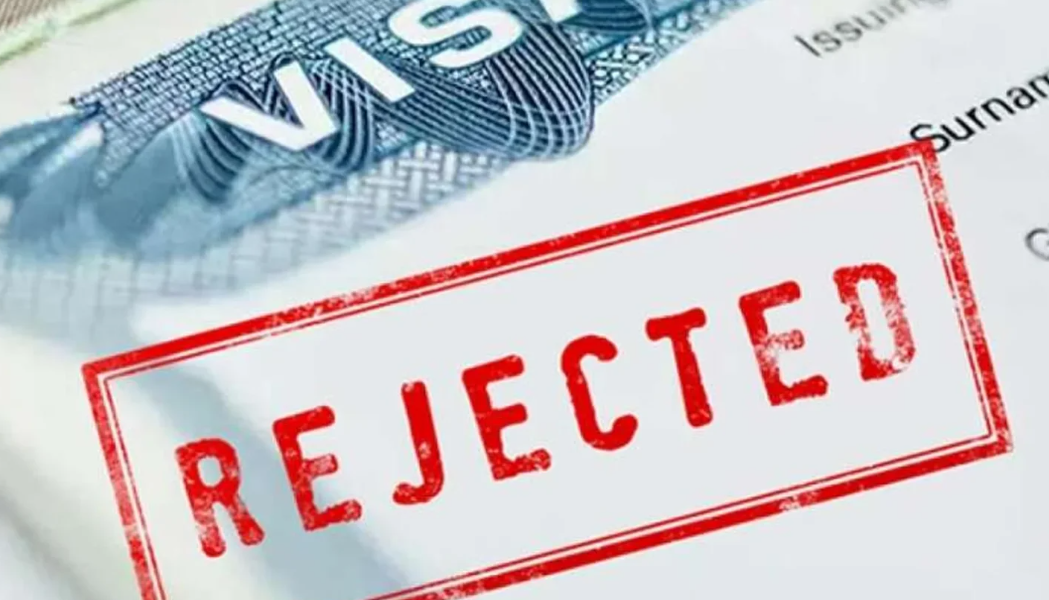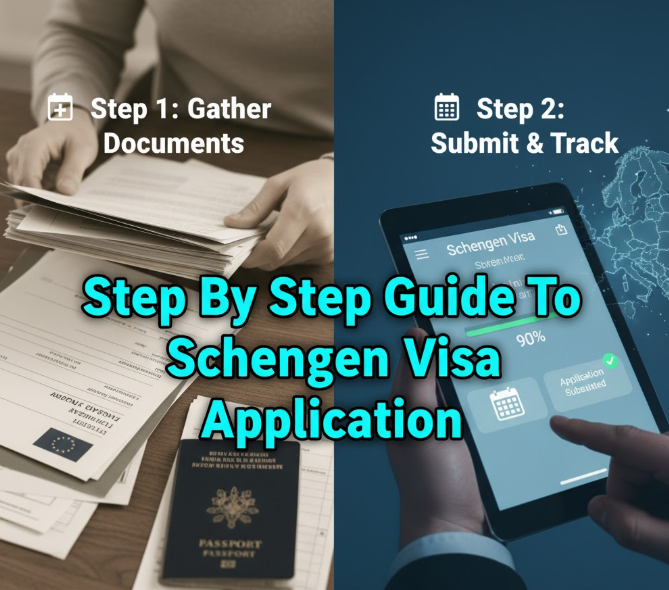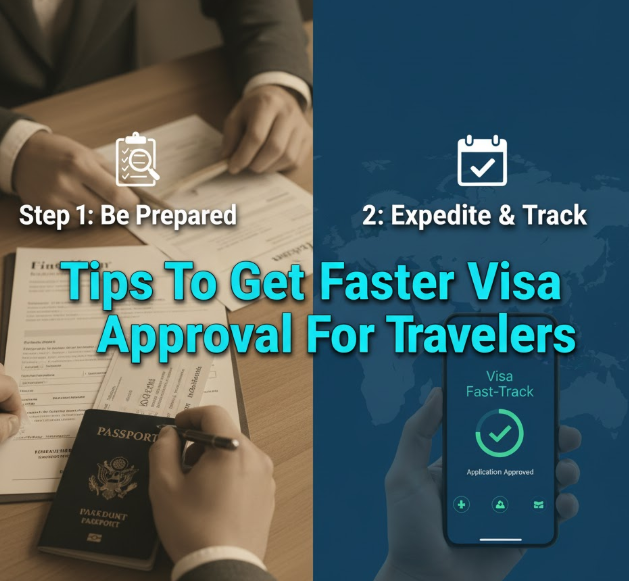The Most Common Reasons For Visit Visa Application Rejection
You’re busy planning a trip overseas, and you know rejection never feels good. Each year thousands of hopeful visa candidates are refused leaving them confused, frustrated and out of pocket. Whether you are traveling to see family, visiting a new country for the first time or going to an important event, having your visa application accepted is the first major step toward reaching this goal. But what really makes visa officers use their stamp to tattoo that grimy “DENIED” across your application?
In this comprehensive guide, we will explore various reasons why visit visas are refused and how you can steer clear of those mistakes. Through understanding what visa officers want to see, you can enhance your application and dramatically improve your chances of being approved.
Key Statistics
- 30% – Average Denial Rate
- 65% – Due to Incomplete Docs
- 45% – Financial Issues
Missing or Incomplete Documentation
This is the single biggest reason why visas are refused. Visa officers must go through hundreds of applications a day — they don’t have time to hunt you down for missing paperwork. When you apply with a half-finished application, it comes off as lazy and causes officers to second-guess your commitment to the trip.
What Documents Are Usually Missing?
Half of all applicants forget important documents and never know. Here are the most frequently missed items:
- Your passport must be valid for at least six months
- Two recent passport-sized photographs, taken according to certain specifications
- Last 3-6 months bank statements
- Letters of employment or business registration documents
- Hotel bookings or invitation letters from hosts
- Travel insurance coverage documents
- Flight itinerary or booking confirmation
- Previous visa copies if applicable
Pro Tip: Always prepare a list before you submit your application. Reconfirm every document against the embassy’s official website (links are given with each action). Better to lead with too much evidence than to omit something crucial.
Insufficient Financial Proof
Visa officers want to be convinced that you have enough money to support yourself abroad and won’t resort to illegal work or become a burden on their country. If you’re filing a bank statement and it has multiple deposits that appear out of place, low balances that don’t make sense or just any sort of strange activity, red flags are going to start popping up right away.
How Much Money Do You Need?
It varies by country, but in most embassies they want to see a history of income and savings. For a regular tourist visa, you will need to have sufficient funds to cover your entire visit including accommodation and food hence emergencies and transportation needs.
| Length of Trip | Recommended Minimum Balance | What Officers Want To See |
|---|---|---|
| 1-Week | $2,000 – $3,000 | Stable and consistent monthly income over time |
| 2-Weeks | $3,500 – $5,000 | Consistent salary deposits for several months running |
| 1-Month | $6,000 – $8,000 | Employment stability (check stubs back “n” months) |
| 3-Months | $12,000 – $15,000 | Strong ties to home country / place of residence |
Warning: Don’t dump large sums of money into your account at the last minute, just before your visa interview. Officers can see that instantly and ask how did you pay for that? They are looking for consistency of financial history, not last-minute scrambles.
Weak Connections to Your Country of Origin
This is probably the most difficult part of any visa application. Embassy officers need to feel confident that you will make your way back home after visiting. If for any reason they believe you might overstay your visa or attempt to work illegally, they’ll turn you down flat.
What Counts as Strong Ties?
Strong ties are any strong connection you have to your home country. These links demonstrate that you actually have substantial reasons to come back:
- A good job with decent pay, especially if you’ve been in that job for years
- Property: Having a home, property or business in your native country
- Family: Spouse, children or aging parents you help support
- School or University Program: Enrolled in a school or university program
- Investments: Stocks, bank accounts or other businesses you currently own
This criterion is often difficult for those young, single applicants without work or a home to their name. If this is you, pay extra attention to demonstrating ties through family connections, school enrollment or other obligations.
Previous Immigration Violations
Your immigration record is also tracked by you. If you have overstayed a visa in the past, been deported or broken immigration rules anywhere, this information is known and registered on international databases. Even a petty violation from years past can come back to haunt your future applications.
Types of Violations That Create Problems
Not all infractions are created equal, but all should set off alarm bells:
| Type of Violation | Impact | How Long You’re Affected |
|---|---|---|
| Overstay on a visa | High | 5-10 years |
| Work without permission | Very high | 10+ years |
| Deported | Severe | Sometimes lifetime |
| Providing false information | Severe | Permanent ban potential |
Unclear Travel Purpose
You have to state why you are going when applying for a visit visa. Vague responses such as “just visiting” or “tourism” no longer cut it. Officers would like very specific information about your plans, who you will be meeting or staying with and what you plan to do each day.
How to Show a Clear Purpose
Be as specific as possible. If you are there to visit family, bring a letter of invitation stating their legal status in the country, too. If you are headed to an event, proof of registration for show. If you are traveling for tourism, put together a detailed itinerary with booked hotels and planned activities.
Smart Move: Plan a day-by-day itinerary for your trip. That includes hotel reservations, any scheduled activities and if at all possible, reservations in restaurants. This demonstrates that you’ve actually thought about visiting and are not just improvising.
Criminal Record or Security Concerns
Nations take security very seriously, especially in the modern world. Any record of criminal activity, no matter how small you might consider it to be, risks being grounds for visa denial. Among these are DUIs, theft/fraud and violent or drug crimes.
It doesn’t matter if your charges were dropped or you served your sentence years ago — you have to disclose it. Give detailed information about your criminal background. Lying about it makes you look a lot worse than the actual crime. Officers can learn through background checks, and lying ensures a denial as well as potential lifetime ban.
Poor Interview Performance
If an interview is required for your visa application, this is your time to either make it or break it. The interviewer should feel comfortable with your responses and move forward with confidence. Many people will tell little casual lies during an interview, or exaggerate a bit here and there when asked about past jobs or reasons for leaving them. Officers are trained to recognize lies and nervousness, so always be confident and tell the truth.
Common Interview Mistakes to Avoid
- Providing information different than what is on your application
- Not having a clue about what to expect on your travels or in the places you’ll visit
- Getting too excited about where you are going (makes them believe you will never come back)
- Arguing with the officer
- Having a surrogate speak on your behalf
- Reading from prepared scripts in an awkward manner
For more detailed guidance on visa interview preparation, check out the U.S. Department of State’s visa information.

Suspicion of Immigration Intent
It is the hardest to deal with type of rejection because so often it is based on “they don’t feel comfortable,” not that you did something illegal or incorrect. If they think you want to come and live forever, work without a permit or marry one of their own, they will refuse your visa no matter how squeaky clean the paper trail looks.
Some profiles generate more doubt: the young adult with a short work history, the citizen of a country that sends too many overstay applicants, those who have relatives abroad permanently or applying for unusually long visits.
Application Form Errors
Little mistakes can lead to big problems. A single typo in your passport number, incorrect dates or different information among your application and supporting documents can lead to rejection. To officers, these are signs of carelessness, or worse, that someone had something to hide.
Before Submitting Your Application:
- Ensure that all dates are consistent throughout
- Ensure passport numbers, names and addresses are consistent throughout
- Ensure that your signature is uniform with all forms
- Review your application for at least three times
- Let someone else read through everything with a fresh pair of eyes
- Make copies of everything you send
Previous Visa Rejections
Being denied once makes it harder to apply again in the future, but not necessarily impossible. It’s whether you’ve somehow dealt with whatever it was that got you turned down before. You will most likely get rejected again if you re-apply right away without remedying the problems.
You should not apply again for three to six months. Take this time to bolster your case by making improvements in your financial situation, collecting cleaner documents or getting professional assistance, if necessary.
Fraud or Fake Documents
This is probably the worst thing you can do. Using fake bank statements, forged employment letters etc will not only get your current application denied, but you can also be banned permanently from that country. New embassy systems can check most documents instantly, and they collaborate with your home country to verify information.
Critical Caution: Do not use an agent/company that says they will get you a guaranteed visa or can make documents. Several would-be migrants have been permanently barred after falling prey to unscrupulous agents. Make sure to use genuine documents, even if they are less than perfect.
Health-Related Issues
Medical examinations are mandatory in some countries for visit visas, especially for longer durations. If you have certain infectious diseases, mental health disorders or medical conditions for which treatment might be very costly, this could also affect your application. Nations are looking after their health systems and public health.
How to Recover From Your Rejections
Some days, you’re merely at the receiving end of rejection. Here’s what you should do:
- Ask for the rejection reason: Some embassies will explain why you have been rejected if asked
- Address the specific problems: Don’t just resubmit with the same docs
- Develop better evidence: Enhance financial documents, provide higher quality invitation letters, or demonstrate stronger ties to the home country
- Consult a professional: Immigration attorneys or consultants can help you look at your case without emotion
- Have patience: Rushing into another application never works
Frequently Asked Questions
How long should I wait to reapply after a visa refusal?
The majority of experts advise waiting between 3 and 6 months before reapplying. That gives you time to address the issues that led you to being rejected, and to gather strength in your supporting documents. Reapplying right away with the same documents in hand is likely to lead to another declination.
If one country refused, can I apply for a visa to another?
Yes, absolutely. A refusal from one country does not automatically impact your applications in other countries. You do, however, have to disclose previous rejections if asked, and some countries share information about visa denials with allies. Each nation has its own set of standards for reviewing applications.
Will I lose the visa fee if my application is denied?
Unfortunately, yes. Application fees for a visa are non-refundable even if your visa is denied. That’s why preparing your application carefully the first time matters so much. The fee is for processing, not the visa.
Will I have a better chance of getting a visa if someone sponsors me?
A sponsor can help, particularly if that person is a citizen or permanent resident of the country you’re visiting and certifies that they will provide for your financial needs. However, it doesn’t guarantee approval. You still have to demonstrate strong ties to your home country and that you’ll depart after visiting.
Can I appeal a visa refusal decision?
This depends on the country. In some countries, appeals or administrative reviews are allowed; in others they are not. Consult the embassy or consulate in question. In these instances it is often better to strengthen the application and reapply than to pursue an extended appeal process.
How much bank balance is required for tourist visa?
There is no one-size-fits-all amount, and it depends on the country and length of the trip. In general, you should have more than enough to cover all of your expenses (accommodation, food, travel, activities) plus emergencies. For a two-week trip, it’s ideal that there is at least $3,000-$5,000 in savings (after paying for the main ticket holder’s expenses), and some demonstrated steady income.
My information has mistakes?
If you have already applied, contact the embassy immediately to alert them of your mistake. Some embassies will make a correction, while others may ask you to withdraw and resubmit. Small typos may be overlooked, but major errors (wrong dates, passport numbers) must be corrected at once.
Will my travel to other countries aid in my visa?
Yes, definitely. A passport filled with stamps from other countries (especially wealthier ones) shows that you have a good travel history and returned home from previous voyages. This is done to create trust with the visa officers. But if you’ve broken any visa rules in the past anywhere, this is going to hurt your application.

Final Thoughts
The approval of a visit visa has nothing to do with luck but with preparation, honesty and attention to detail. The bulk of rejections occur owing to preventable errors in the application process — not because officers seek to deny people visas. By properly preparing documents, proving strong ties to your home country, and presenting an honest case in clear language you can greatly increase your chances of getting approved.
Keep in mind, visa officers are not the enemy. They’re there to defend its borders while letting in real visitors. If you can demonstrate that you are a bona fide traveler who will comply with visa terms and go back home, you are halfway there.
Apply early, get all documents together, check everything and be 100 percent honest about your story. With the correct preparation and mindset, your next visa application may have a happy ending. Safe travels!




